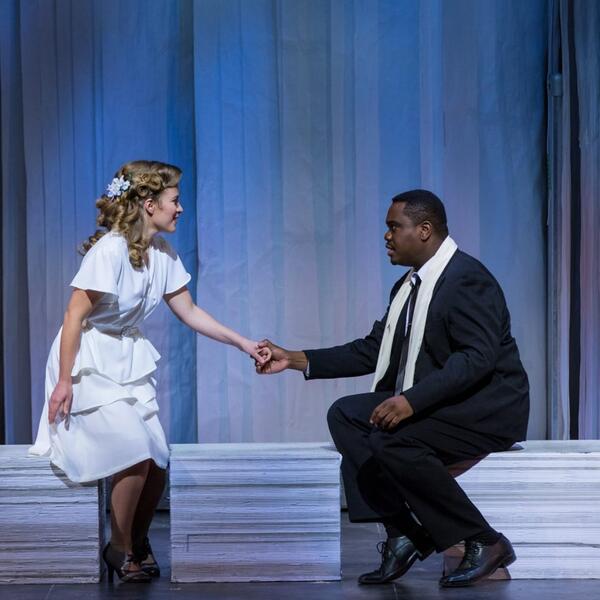Master of Music (MMus) Conducting
Overview
What to expect
The Master of Music in Conducting is a leading North American program for training ensemble conductors. Students study repertoire, build technique, and develop artistic leadership. They conduct ensembles performing choral, wind, orchestral, opera, and/or contemporary music.
Why it stands out
Students study with distinguished conductors of national and international reputation. Faculty conductors help them develop professional opportunities within the university and the larger music community beyond.
Who it's for
Students seeking to develop advanced skills in conducting choral and orchestral ensembles are ideal candidates for this program.
Outcomes
Opportunities for study
Students specialize in orchestral, wind ensemble*, or choral conducting. They emerge as experts in their area.
*Please note that the MMus Wind Conducting program is not accepting new students for the 2026/27 year.
Opportunities after graduation
The MMus in Conducting provides students with the skills, strategies, and connections for professional success. The majority of our graduates pursue careers in music.
Postgraduate opportunities
Successful graduates qualify to apply for entry into the Doctor of Musical Arts in Performance, Conducting program.
Curriculum
Choral Conducting
- Conducting Lessons
- Graduate Conducting Seminars
- Critical Approaches to Music History
- Analysis and Performance Practice Courses
- Electives
Orchestral Conducting
- Conducting Lessons
- Graduate Conducting Seminars
- Critical Approaches to Music History
- Analysis and Performance Practice Courses
- Electives
Wind Ensemble Conducting
- Conducting Lessons
- Graduate Conducting Seminars
- Critical Approaches to Music History
- Analysis and Performance Practice Courses
- Electives
Core Courses
All students receive individual instruction in conducting (the equivalent of two full-year courses) as preparation for two recitals they must perform during their program. Additional standard core requirements include courses on music analysis, music history, and the history of performance practices (the equivalent of two full-year courses).
Specialization
Orchestral students take the equivalent of two full-year courses on orchestral conducting and a 0.5 full-year course on choral conducting.
Choral students take the equivalent of 2.5 full-year courses on choral conducting, the equivalent of one full-year course on vocal-choral pedagogy for conductors, and a 0.5 full-year course on orchestral conducting.
Wind students take the equivalent of two full-year courses on wind ensemble conducting and a 0.5 full-year course on the development of the wind band.
Electives
Orchestral and wind students may choose an elective (a 0.5 full-year course) from a list of offerings related to conducting.
Complete admission requirements can be found at Application Materials.
Complete information on how to apply can be found at Applying.
Have a question?
We bring together the brightest researchers, educators, creators and performers. We welcome you to join us.
